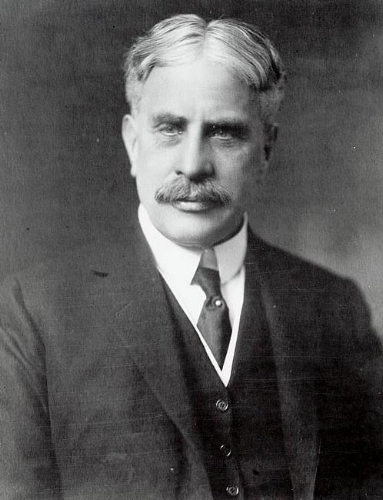Robert Borden -- PM in Peace and War
/
Sir Robert Borden
PM in Peace and War
By
Don Cummer
Two days after the Conservative Party of Canada chose a new leader last month, a presentation to celebrate Canada150 demonstrated how leadership and priorities change in Canadian politics.
In the third in its series of lectures on Canada’s Prime Ministers, the Old Ottawa East Community Association invited Dr. Greg Donaghy to speak about Sir Robert Borden, PM from 1911-1920. In the previous presentation in April, Dr. Phil Azzie had talked about Sir John A. Macdonald (1867-1873, 1878-1891).
Much had changed in Canada in the 20 years that separated the two administrations. One of the biggest changes was the attitude and leadership style of the Conservative leader.
Where Macdonald was practical and pragmatic, Borden was idealistic and visionary.
Where Macdonald led through bonhomie and personal charm, Borden was intellectual and detached. He did not know the names of some of his own Caucus.
Macdonald was fiercely partisan; Borden entered politics later in life, had little previous affiliation with the Conservatives and disliked partisanship. He would eventually form a coalition government.
Borden and his government favoured many policies then that would put him at the other end of the political spectrum from today’s Conservatives. He was regarded as a champion of the progressive ideas of his day.
Like the Conservative premiers at the time, he believed government should be involved in ownership of ambitious public infrastructure projects, such as the building of the hydro-electric capacity of Ontario.
He found distasteful the corruption and patronage that characterized Canadian governance, and he laid the foundation for a professional public service.
It was under his watch that women first voted in federal elections.
He came to office after defeating Sir Wilfrid Laurier’s proposal to implement free trade with the United States, and believed that Canada should take a prominent place in what he foresaw as a great federation of the dominions of the British Empire.
By the time he left office, the political landscape and the definition of “progressive” had changed dramatically, with the rise of Labour and Farmers’ organizations that clashed with the government – violently in the case of the Winnipeg General Strike in 1919.
What happened in between, of course, was the First World War, and Dr. Donaghy makes the case that it is as a war-time Prime Minister that Borden made his greatest contributions to Canada.
Given its small population, Canada punched far above its weight in the war effort. While it appreciating the sacrifices that Canada and the rest of the colonies were making, the British government had little inclination to give accurate and timely information to help them conduct their contributions to the war.
Nor was Canada receiving as much of the contracts to supply materiel that its industrial capacity could provide; Britain kept turning to the United States for food and munitions.
Borden went to London to put forward the case for Canada assuming greater responsibility, authority and recognition in the war effort. He visited the Front where he developed an affectionate relationship with “his boys” fighting in the trenches. Along with other leaders such as South Africa’s Jan Smuts, he made the case for a stronger voice from the dominions.
When the victors and vanquished gathered to hammer out the Versailles peace treaty, Borden insisted that Canada had earned the right to separate representation and a separate signature. It was an important step forward in our development as a nation.
Dr. Donaghy pointed out that the pursuit of “equality of sacrifice” during the war left a big imprint on Canada. The imposition of income tax was seen as a temporary measure through which the rich were expected to pay their share. (They didn’t, Donaghy observes.)
The idea of “equality of sacrifice” also produced conscription, which alienated Quebec to a degree that shaped national politics for generations to come.
Dr. Donaghy, who is Head of the Historical Section and Deputy Director, Policy Research Division, Global Affairs Canada, laid out Borden’s accomplishments and failures before an audience of about a hundred at St. Paul’s University.
The series continues on June 26 when Dr. Stephen Azzi of Carleton University will discuss Lester Pearson.
After the summer break, the series resumes on a Monday, September 25, when Dr. Xavier Gélinas will present Louis St-Laurent.
Part of the Old Ottawa East Community Association’s Canda150 celebrations, the lectures are held at room L120, 233 Main Street. Admission is free.
( 30 )
Don Cummer lives in Old Ottawa South. He is the author of historical novels and his current work-in-progress is set in the Borden era. www.doncummer.com






